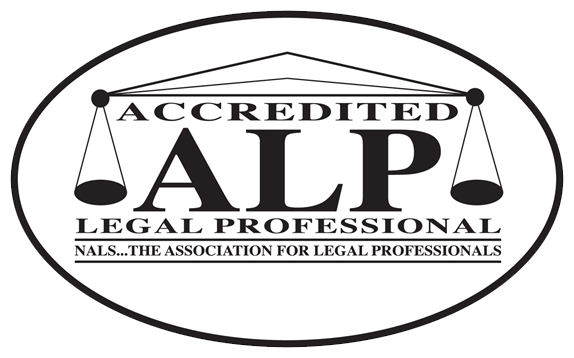Certified Legal Secretary

Online Legal Secretary Training
Become a Certified Legal Secretary
Legal secretaries play an essential role in keeping a law firm running smoothly. This 100% online course will train you for a career as a certified legal secretary by helping provide foundational knowledge over a broad range of legal topics to help prepare you for the NALS Accredited Legal Professional (ALP) exam. Key topics include legal terminology, office procedures and management advice, basic accounting, and QuickBooks.

Disclaimer: These courses are not offered at Snow College for credit or otherwise, but through a Continuing Education program partnership with Ed2Go. They are not eligible for financial aid through Snow College.
Job Outlook for Certified Legal Secretaries
· According to the US Bureau of Labor Statistics (BLS), jobs for legal secretaries, legal assistants and paralegals will grow by 10% through 2026, which is faster than most other positions.
· The BLS states that the average annual salary for legal secretaries is over $48,000. However, salary can increase depending on your law specialty and your experience level.
Certified Legal Secretary FAQs
WHAT DOES A LEGAL SECRETARY DO?
Legal secretaries handle both administrative tasks and tasks specific to the legal field. Typical duties for a legal secretary may include communicating between attorneys and clients, filing case documents, overseeing billing, processing new case assignments and more.
WHAT IS THE DIFFERENCE BETWEEN A LEGAL SECRETARY AND A PARALEGAL?
Paralegals are responsible for performing many of the tasks an attorney would do otherwise, such as conducting legal research or preparing a case file. Legal secretaries play a more administrative role within the law firm, typically overseeing daily office procedures.
CAN LEGAL SECRETARIES WORK IN ANY STATE?
Yes. Legal secretaries can work in any state because unlike attorneys, they are not bound to a specific state licensing board. In other words, a legal secretary training is valuable nationwide.
HOW DOES CERTIFICATION HELP YOU?
According to the National Association for Legal Professionals (NALS), obtaining a NALS certification demonstrates career commitment, builds credibility, showcases skills, and opens the doors of opportunity to enhance your career in the legal industry. The ALP certification provides an opportunity to begin your career above the competition.
Course Objectives
- Prepare for the NALS Accredited Legal Professional exam
- Learn useful and practical office and administrative skills
- Gain legal research and writing skills
- Use legal terminology effectively
- Manage projects in legal offices
- Communicate persuasively and effectively
Prerequisites and Requirements
While there are no prerequisites to complete this course, it is designed to prepare you to pass the ALP exam. In order to sit for the exam, students need to meet the exam eligibility requirements independent of our online program.
To sit for the ALP exam, you must have completed one of the following:
- Completion of an accredited business/legal course,
- Completion of a NALS Legal Training Course, or
- One year of general office experience
Curriculum
- Ethics for Paralegals
- Law Office Management
- Introduction to Accounting
- Grammar Essentials
- Legal Writing
- Legal Research and The Law Library
- Introduction to the Legal System
- Administrative Law
- Civil Litigation
- Contracts
- Torts
- Criminal Law and Procedure
- Family Law Outline
- Business Entity Formation
- Real Estate Law
- Probate Law and Estate Planning
- Bankruptcy Law
Instructors
Katherine Squires Pang
Katherine Squires Pang, J.D., LL.M., M.Ed has practiced law with since 1983. She has served as an adjunct faculty member in the Graduate School of Management at the University of Texas, Dallas, and has been an adjunct faculty member of many universities, including New York University and the University of California, Irvine. She received her B.A. in 1980 from Clark University, her J.D. from the University of Dayton Law School in 1982, her LL.M in Taxation from Georgetown University Law School in 1983, and her M.Ed from the University of Texas in 2001.
Registration and Enrollment
This course is 100% online. Start anytime.